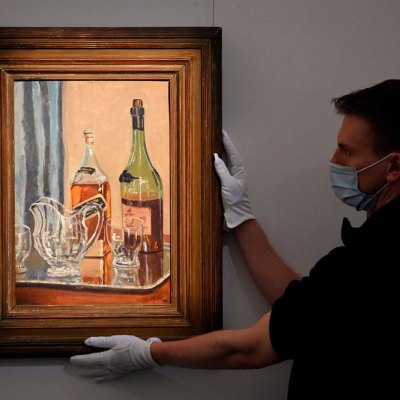Introducing Rakewell, Apollo’s wandering eye on the art world. Look out for regular posts taking a rakish perspective on art and museum stories.
Since its release on Christmas Day, the internet has been abuzz with reactions to the new Netflix show Bridgerton. The show, an adaptation of Julia Quinn’s series of Regency romance novels, has been described by more than one commentator as ‘Gossip Girl meets Downton Abbey’: unsurprising, then, that its creative approach to historical accuracy is as entertaining as it is, at times, deeply silly.
In the opinion of your couch-bound correspondent, just as fascinating as the series’ reimagining of the Regency period and resulting anachronisms (some very deliberate; others perhaps not), is the way the show plays fast and loose with its locations. Take the numerous establishing shots featuring Royal Crescent, one of Bath’s most recognisable landmarks – for a story supposedly set in London.
Royal Crescent, Bath – or is it London? Photo: Netflix

Or the grand private view held at ‘Somerset House’ – the exterior of which looks uncannily like that of the Queen’s House in Greenwich.
The Queen’s House in Greenwich posing as Somerset House. Photo: Netflix

Eagle-eyed viewers, especially those with an enthusiasm for Regency dramas – and readers of this month’s issue Apollo – may also note the recurrence of a particular country house: Wilton House near Salisbury, which serves as the filming location for four different residences. (You can read about its sculpture collection in the current issue of Apollo.) Both the exterior and parts of the interior of Wilton House are used for the London abode of the Duke of Hastings, yet its many rooms also provide the setting for scenes in the duke’s country pad, the fictional Clyvedon Castle (not to be confused with Cliveden); the home of his mentor, Lady Danbury; and even the Queen’s residence, Hampton Court Palace.
An exterior shot of Wilton House – in the guise of the Duke of Hasting’s London residence – in Bridgerton. Photo: Netflix

Wilton House is no stranger to film crews, having appeared in adaptations of Austen’s Emma and Pride and Prejudice as well as that other British sensation on Netflix, The Crown. It feels fitting that the former home of Thomas Herbert, Earl of Pembroke – a renowned eccentric with his own less-is-more approach to accuracy and authenticity – has found such an illustrious career on both the silver and the small screens.
Got a story for Rakewell? Get in touch at rakewell@apollomag.com or via @Rakewelltweets.




